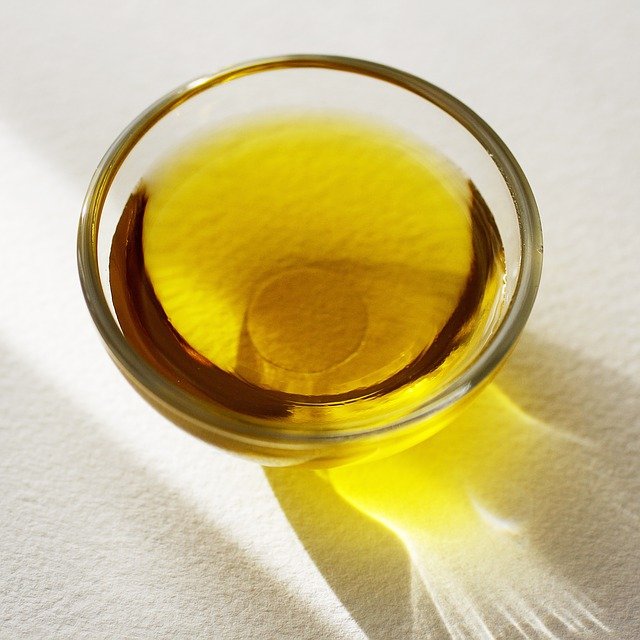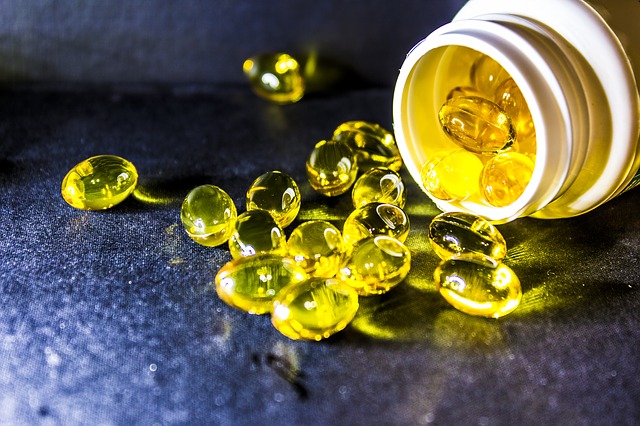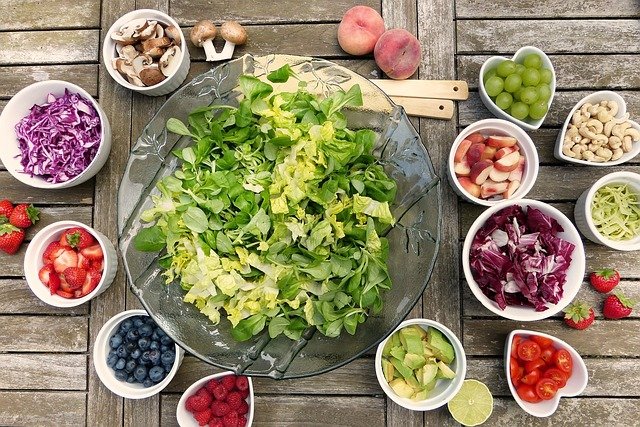Featured Post
- Get link
- X
- Other Apps
Cholesterol is a naturally occurring substance made in the liver that has many important functions. For example, it helps keep cell walls flexible and is necessary for the production of various hormones.
The production of cholesterol depends to a large extent on the intake of certain foods, mainly those of animal origin. However, like any other substance, when they exceed the levels of cholesterol in the blood, problems arise.
Like fat, cholesterol does not dissolve in water. And its transport in the body depends on molecules called lipoproteins, which also carry fat and fat-soluble vitamins in the blood.
There are different types of lipoproteins that have different effects on health. For example, high levels of low-density lipoprotein (LDL) cause cholesterol to build upon the walls of blood vessels, which can lead to clogged arteries, strokes, heart attacks, and kidney failure.
On the contrary, high-density lipoprotein (HDL) helps to remove cholesterol from the walls of blood vessels, thus preventing these diseases.
Read on to find out what are the 10 natural ways to increase good HDL cholesterol and reduce bad LDL cholesterol.
Link Between Blood Cholesterol And Diet
The liver makes as much cholesterol as the body needs it. And it packs this fat cholesterol into very low-density lipoprotein VLDL.
As VLDL releases fat into the body's cells, it is transformed into denser LDL or low-density lipoprotein, which carries cholesterol where it is needed.
The liver also releases high-density lipoprotein (HDL), which is responsible for transporting unused cholesterol back to the liver. In a process known as reverse cholesterol transport, which helps avoid clogged arteries, protecting the heart from certain diseases.
LDL and VLDL lipoproteins are prone to damage from the presence of free radicals in the body, in a process called oxidation. In this oxidation state, LDL and VLDL lipoproteins cause further damage to the heart.
Some food companies frequently advertise low-cholesterol products, which will actually only have a minimal influence on the amount of cholesterol in the body.
This is because the liver produces cholesterol depending on the food you eat. When your body gets more cholesterol from your diet, your liver will make less.
This was proven in a study that randomly assigned 55 adults to eat more cholesterol obtained from two eggs each day. In the end, it was found that those adults who ate more cholesterol did not have higher cholesterol levels or changes in lipoproteins, compared to those who ate less cholesterol.
It should be clear that although dietary cholesterol has little influence on the total cholesterol level, other foods in your diet can worsen it, as can smoking, family history, and a sedentary lifestyle.
On the other hand, a healthy lifestyle can help increase good HDL cholesterol and lower bad LDL cholesterol.
The following are 10 natural ways to Reduce High Cholesterol level:
1. Eat Monounsaturated Fat
Unlike saturated fats, unsaturated fats have at least one chemical double bond that changes the way they are used by the body. Among unsaturated fats, there are monounsaturated fats that have only one double bond.
Most conventional diets recommend a low-fat diet to lose weight, not realizing that after 6 weeks, the harmful LDL cholesterol is reduced, as does the good HDL cholesterol.
In contrast, a diet rich in monounsaturated fats reduces harmful LDL cholesterol but also protects high levels of healthy HDL cholesterol.
A study carried out in 26 adults with high cholesterol shows this, concluding that a diet rich in monounsaturated fats increased the good HDL cholesterol by 12%, compared to a diet low in saturated fat.
Another benefit of monounsaturated fats is that they can reduce the oxidation of lipoproteins, which contribute to clogging the arteries. The same study in 26 people showed that replacing polyunsaturated fats with monounsaturated fats in the diet reduces the oxidation of fats and cholesterol.
In general, you can get three benefits from monounsaturated fats:
They lower bad LDL cholesterol.
They increase the good HDL cholesterol.
Reduces harmful oxidation that contributes to clogging arteries.
The following are good sources of monounsaturated fat, and some are also good sources of polyunsaturated fat:
*Olive oil
*Canola oil
*Olives
*Almonds
*Walnuts
*Pecans
*Hazelnuts
*Cashew nuts
*Avocados
2. Eat Omega-3 Polyunsaturated Fats
Polyunsaturated fats have multiple double bonds, which causes them to act differently in the body compared to saturated fats. Research shows that polyunsaturated fats lower bad LDL cholesterol and the risk of heart disease.
An eight-week study on the diet of 115 adults replaced saturated fat with polyunsaturated fat. Conclusion that the levels of total cholesterol and bad cholesterol LDL were reduced by approximately 10%.
Another study, including 13,624 adults, replaced saturated fat in the diet with polyunsaturated fat, providing about 15% of total calories. Thus, the risk of coronary artery disease was reduced by approximately 20%.
Another benefit of polyunsaturated fats is that they also reduce the risk of metabolic syndrome and type 2 diabetes. In this line of research, a study conducted on the diet of 4,220 adults replaced 5% of the calories obtained from carbohydrates with calories from polyunsaturated fats. Checking that fasting blood glucose and insulin levels decreased, which means a lower risk of type 2 diabetes.
Omega-3 fatty acids are a very heart-healthy type of polyunsaturated fat. And they can be found in sin supplements, seafood, and the following foods:
*Chia seeds
*Flax seeds
*Linseed oil
*Cod liver oil
*Mackerel
*Salmon
*Herring
*Sardines
*Tuna
*Prawns
*Soy and Nuts
Keep in mind that all polyunsaturated fats are heart-healthy and reduce the risk of type 2 diabetes. Omega-3 fats are a special type of polyunsaturated fat with added benefits for your heart.
3. Avoid Trans Fats
Trans fats are unsaturated fats that have been modified in a process called hydrogenation. This is done to make the unsaturated fats in vegetable oils more stable as an ingredient. Many foods like margarine and butter are made from partially hydrogenated oils.
The resulting trans fats are not completely saturated, but they are solid at room temperature. This is one of the reasons many food industries use trans fats in spreads, cakes, and cookies, as they provide more texture than unsaturated liquid oils.
Unfortunately, partially hydrogenated trans fats are handled differently than other fats in the body, but not in a good way. Trans fats increase total cholesterol and bad LDL cholesterol and lower good HDL cholesterol by up to 20%.
A study following global health patterns estimated that trans fats could be responsible for 8% of deaths from heart disease worldwide. This is why many food companies are required by law to list the amount of trans fat on the nutrition labels of their products.
However, nutrition labels can be misleading, as companies are allowed to round when the amount of trans fat per serving is less than 0.5 grams. In other words, some foods may contain trans-fat even though their labels say 0 grams of trans fat per serving.
To avoid being misled, carefully read the ingredients in addition to the nutrition label. If the product contains partially hydrogenated oil, it has trans fat and should be avoided.
Remember that partially hydrogenated oil products contain trans fat and are harmful, even if the label says the product has "0 grams of trans fat per serving."
4. Eat Soluble Fiber
Soluble fiber is a group of compounds in plants that dissolve in water and cannot be digested by humans.
However, the beneficial bacteria that live in the gut can digest soluble fiber. And in fact, they require it for their own nutrition. These beneficial bacteria, called probiotics, reduce the two harmful types of lipoproteins, LDL and VLDL.
A study in 30 adults found that taking 3 grams of soluble fiber supplements a day for 3 months decreased bad LDL cholesterol by 18%.
Another study on fortified breakfast cereal found that soluble fiber added from pectin reduced bad LDL cholesterol by 4% and fiber from psyllium reduced it by 6%.
Soluble fiber can also help increase the benefits of cholesterol when taking statin medication.
A 3-month study of 68 adults taking a daily dose of 10 mg of simvastatin, a drug used to lower lipids, showed that adding 15 grams of fiber Psyllium Metamucil to their daily dose. It was found to be as effective as taking a dose greater than 20 mg of statins without fiber.
The benefits of soluble fiber reduce the risk of disease. Several studies have shown that ingesting soluble and insoluble fiber increases life expectancy by 17 years by almost 15%.
Another study of more than 350,000 adults found that those who ate the most fiber from cereals lived longer, being 15-20% less likely to die during the 14-year study.
Some of the best sources of soluble fiber include:
*Beans
*Green peas
*Vegetables
*Lentils
*Citric fruits
*Apple
*Carrot
*Oats
*Whole grains
*Fiber supplements like psyllium
Keep in mind that soluble fiber nourishes healthy probiotic gut bacteria and removes cholesterol from the body, reducing bad LDL and VLDL cholesterol.
5. Do Physical Exercise
Natural Ways To Reduce High Cholesterol level
Physical exercise, in addition to being healthy for the heart, improves your physical condition, and fights obesity, thereby reducing bad LDL cholesterol and increasing good HDL cholesterol.
A 12-week study subjected 20 overweight women to aerobic and resistance exercise, reducing harmful oxidized LDL cholesterol in that time.
These women exercised three days a week with 15 minutes of aerobic activity, which included walking, jumping, resistance band exercises, and low-intensity dancing.
Low-intensity exercises such as walking are proven to increase good HDL cholesterol, and when exercise is more intense and prolonged the benefit is greater.
Various studies have shown that 30 minutes of physical activity, 5 days a week is enough to improve cholesterol and reduce heart risk.
Ideally, aerobic activity should raise your heart rate to about 75% of your capacity, and resistance training should be 50% of your maximum effort.
When an aerobic activity raises your heart rate to 85% of its maximum, your good HDL cholesterol will increase, while lowering your bad LDL cholesterol. The longer the duration, the better the results.
Remember that endurance exercise can lower bad LDL cholesterol, even at moderate intensity, and when exertion is maximal your good HDL cholesterol will increase. By increasing the number of sets or repetitions there will be a better benefit.
In short, all types of exercise are healthy to improve cholesterol and heart health. The longer duration and intensity you will get a better benefit.
6. Lose Weight
Diet influences the way the body uses and produces cholesterol.
Studies have shown that weight-loss diets increase the absorption of cholesterol and decrease the creation of new cholesterol in the body. At the same time, they stimulate the creation of good HDL cholesterol, while the bad LDL does not change, which significantly reduces the risk of heart disease.
In older people, the diet also gives positive results, experiencing a reduction in LDL cholesterol, which leads to more heart health.
A study of 35 young women on a diet showed a decrease in the creation of new cholesterol in the body during a six-month weight loss.
Overall, weight loss has a double benefit for the body, increasing good HDL cholesterol and lowering bad LDL cholesterol, thus lowering total cholesterol.
7. Don't Abuse Alcohol
When used in moderation, ethanol in alcoholic beverages increases good HDL and reduces the risk of heart disease.
A study of 28 adult women found that drinking 24 grams of white wine alcohol daily improved good HDL by 5%, compared to drinking equal amounts of white grape juice.source
Alcohol also enhances reverse cholesterol transport, which means that cholesterol is removed from the blood and blood vessel walls, returning back to the liver. This reduces the risk of clogged arteries and heart disease.
While moderate alcohol intake reduces the risk of heart disease, be aware that too much alcohol creates dependency and damages the liver.
The recommended limit is two daily drinks for men and one for women. This can improve the good HDL cholesterol and prevent clogging of the arteries. However, excessive alcohol consumption increases the risk of heart disease and damages the liver.
8. Avoid Smoking
Smoking increases the risk of heart disease in many ways, and one of them is by changing the way the body handles cholesterol.
First, the immune cells in smokers are unable to return cholesterol from the walls of the blood vessels to the blood for transport to the liver. This is damage associated with tar, which is produced by the combustion of tobacco.
These dysfunctional immune cells can contribute faster to the development of clogged arteries in smokers, increasing cardiac risk.
Many studies have shown that smoking is associated with a decrease in good HDL cholesterol levels and an increase in bad lipoproteins, which will result in an increase in total cholesterol.
Fortunately, quitting smoking can reverse the harmful effects of cigarettes on cholesterol, preventing the development of many diseases.
9. Consider Plant Stanols and Sterols
Today there are multiple supplements that promise to control cholesterol.
Stanols and sterols are plant versions of cholesterol, which due to their great similarity to it, are absorbed from the diet in the same way. And the good thing about these plant supplements is that due to their chemical composition different from human cholesterol, they do not contribute to clogging the arteries.
Instead, they can lower cholesterol just like human cholesterol does, and when sterols are absorbed from the diet, this replaces the absorption of cholesterol.
Plant stanols and sterols can be found naturally and in small amounts in vegetable oils, or as additives to certain oils and butter substitutes.
A study of 80 adults between men and women found that consuming yogurt with one gram of plant stanols reduced bad LDL cholesterol by approximately 15%, compared to using a placebo. Another similar study showed a reduction in bad LDL by 20%.
Despite the proven benefits for cholesterol, there is no evidence that stanols or sterols lower the risk of heart disease.
What you should know is that these plant substances in vegetable oil or margarine compete with the absorption of cholesterol and reduce bad LDL cholesterol by up to 20%.
10. Try Supplements
Natural Ways To Reduce High Cholesterol level
There is strong evidence that soluble fiber and fish oil improve cholesterol and promote heart health. Another supplement to consider for improving cholesterol is coenzyme Q10, although its long-term benefits are unknown.
Fish oil
Fish oil is rich in omega-3 fatty acids, docosahexaenoic acid (DHA), and eicosapentaenoic acid (EPA).
A study in 52 adults found that taking 4 grams of fish oil a day reduced the total amount of fat carried in the blood. When the daily dose was increased to 6 grams, the good HDL cholesterol increased.
Another study in more than 15,000 adults found that omega-3 fatty acids, included in the form of fish oil supplements, reduced the risk of heart disease, thereby increasing life expectancy.
Psyllium
Psyllium is a form of soluble fiber that is available as a supplement.
A 12-week study of 33 adults found that cookies fortified with just 8 grams of this fiber reduced both total cholesterol and bad LDL cholesterol by nearly 10%.
Another similar 26-week study found that using 5 grams of psyllium twice daily as a supplement lowered total and LDL cholesterol by about 5%.
Coenzyme Q10
Coenzyme Q10 is a food chemical that helps cells produce energy. This coenzyme is similar to a vitamin, with the difference that the body can produce it, preventing deficiency.
Even if there is no deficiency, this coenzyme in the form of supplements can bring some benefits, among them the reduction of total cholesterol, and in the treatment of heart failure.
It is not yet clear whether coenzyme Q10 reduces the risk of developing heart failure or heart attacks.
Keep in mind that
Cholesterol is essential for the body to perform important functions, but a lack of control of this substance can cause clogged arteries, leading to heart disease.
Low-density lipoprotein (LDL) is prone to free radical damage, further increasing the risk of heart disease. In contrast, high-density lipoprotein (HDL) protects against heart disease by isolating cholesterol from the walls of blood vessels and carrying it back to the liver.
If you think your cholesterol is out of control, a change in lifestyle will be the first line of treatment. Drinking alcohol to excess, smoking, and eating trans fat is something to avoid.
Unsaturated fats, soluble fiber, and plant sterols and stanols will help increase your good HDL cholesterol and decrease your bad LDL. Physical exercise and weight loss can also help.
If you suspect that your cholesterol levels are out of control, have them checked by your doctor. A fasting blood draw and lipid profile are all you need to know.source source (1)






Comments
Post a Comment